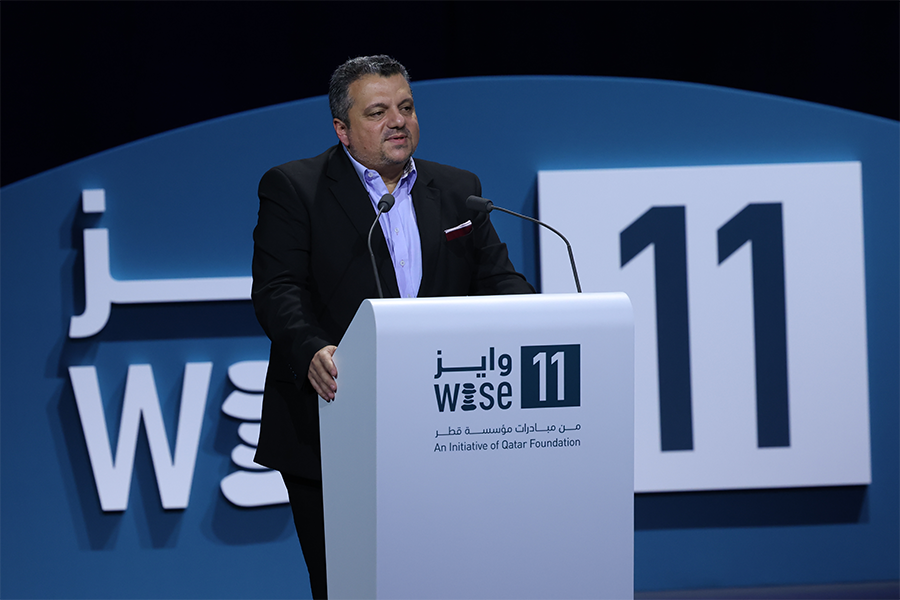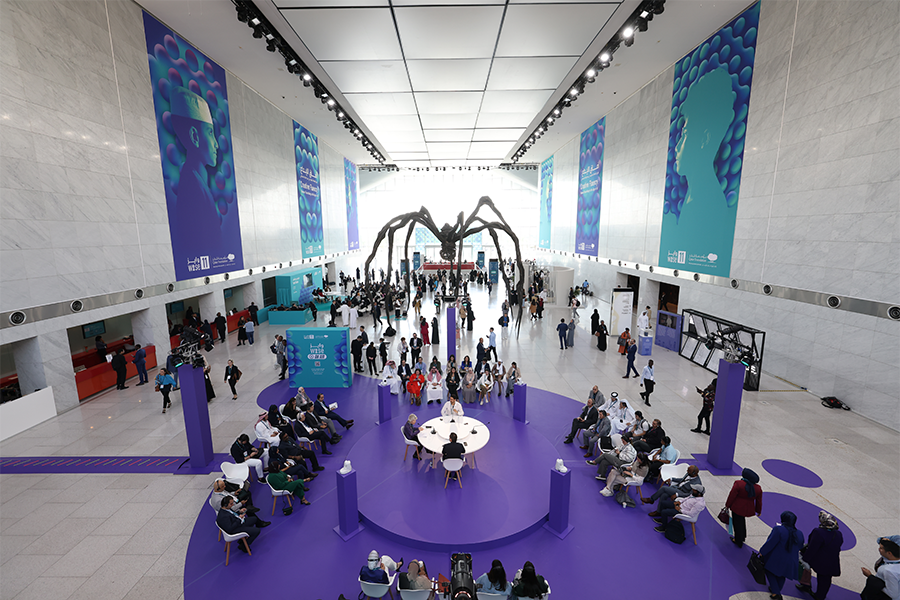
In the evolving landscape of global education, the integration of Artificial Intelligence (AI) presents both exciting opportunities and formidable challenges. This transformation is central to the discussions at the World Innovation Summit for Education (WISE) in Qatar, as outlined by Stavros Yiannouka, the organization’s CEO. His insights offer a glimpse into the future of education, shaped by AI and innovation.
WISE, fulfilling the mandate given by its parent organisation, Qatar Foundation, is a pioneering force in reimagining education. The organization operates on three pillars: conducting research to inform educational practices, collaborating with educators and innovators, and advocating globally through events and outreach. Yiannouka emphasizes the transformative value of education and the crucial role of innovation in ensuring its widespread impact.
The focus of WISE’s recent summit, WISE 11, was AI in education, reflecting the growing significance of this technology in the sector. Yiannouka recalls how the unveiling of AI tools like ChatGPT marked a paradigm shift, turning skepticism about educational technology into optimism about its potential to revolutionize learning and teaching. “This revelation shifted the perspective on the realistic feasibility of deploying technology for educational transformation,” he notes, highlighting AI’s potential to approximate human-level interactive capabilities in educational settings.
However, integrating AI into traditional education methods is not without its challenges. Yiannouka points out the dual nature of AI, offering both opportunities and risks. While AI can help address the global shortage of qualified teachers, especially in emerging economies, it also raises concerns about misinformation and the integrity of authoritative knowledge in education. He envisions AI as a powerful assistant for teachers, aiding in various aspects of teaching and learning, thus enhancing the educational experience.
“Education is the best idea humanity ever had. It is the original AI.”
Stavros Yiannouka, CEO World Innovation Summit for Education (WISE)
Yiannouka also sheds light on the challenges of making AI accessible and inclusive, especially in underprivileged areas. Addressing the digital divide and enhancing tech proficiency among teachers in these communities are key steps towards this goal. He acknowledges the economic barriers and the computing power required for advanced AI models, but remains optimistic about the possibilities of making this technology more accessible.
Education, according to Yiannouka, is fundamental to human flourishing and well-being. He views it as a tool for good, capable of transmitting and building upon human wisdom and knowledge across generations. This perspective aligns with the idea that education, while not a panacea for all global problems, can guide humanity in the right direction.
Yiannouka’s journey to WISE, transitioning from law to education, reflects his passion for transformative work in this sector. His experience in building up a school of public policy in Singapore and his role at WISE have given him a unique vantage point to observe and influence the educational landscape.

Reflecting on the impact of WISE since its inception in 2009, Yiannouka notes its success in keeping education at the forefront of global discussions and fostering innovative solutions. WISE’s role in emphasizing education’s role in various global issues and its recognition of innovation through awards and recognitions has been significant. Looking ahead, he sees the challenge for WISE as enhancing its relevance by supporting the development of practical solutions in education.
Yiannouka’s insights into the role of AI in education, drawn from his extensive experience and observations at WISE, paint a picture of a future where technology and innovation play a central role in advancing global education. While challenges remain, the potential for transformative change in the sector is evident, promising a more inclusive, effective, and dynamic educational landscape for generations to come.
In the midst of discussing the specificities of AI in education, Stavros Yiannouka also reveals a broader optimism about human progress. He aligns himself with thinkers like Steven Pinker, who argue for a positive trajectory in human development. Yiannouka believes in the power of education as a cornerstone of civilization, facilitating the transmission and cumulative building of knowledge across generations. This process, he suggests, is akin to an original form of AI, where human wisdom is extracted, shared, and expanded upon over time. Despite the various challenges that humanity faces, including in education, Yiannouka maintains a hopeful perspective. He cites data showing a global reduction in violence and an increase in prosperity, viewing these trends as indicators of the overall improvement in the human condition.
This outlook is not just limited to the education sector but is reflective of his general stance on human progress, emphasizing the importance of maintaining a positive view while acknowledging and addressing the challenges that arise. Our future shines bright and undoubtedly AI can help![]()









